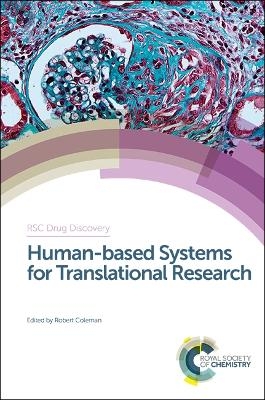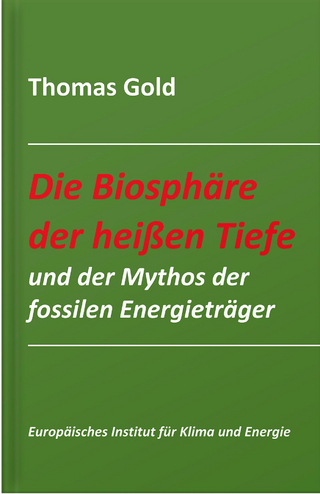
Human-based Systems for Translational Research
Seiten
2014
Royal Society of Chemistry (Verlag)
978-1-84973-825-5 (ISBN)
Royal Society of Chemistry (Verlag)
978-1-84973-825-5 (ISBN)
- Titel z.Zt. nicht lieferbar
- Versandkostenfrei innerhalb Deutschlands
- Auch auf Rechnung
- Verfügbarkeit in der Filiale vor Ort prüfen
- Artikel merken
This book provides a detailed history and discussion of the use of human tissues as an alternative to animal-based testing for assessing the efficacy and safety of new medicines.
This book provides a history and discussion of the use of human tissues as an alternative to animal-based testing for assessing the efficacy and safety of new medicines. Beginning by providing a historical background to animal-based testing, this text then describes in detail the issues relating to access to human cells and tissue and the rules and regulations governing their use. The book illustrates what is currently possible in humanising medicines research and development, and suggests more rational and reliable means of developing safe and effective drugs for the future than those on which we currently rely. Early chapters establish the need to generate more data in human-derived test systems, and the need for resources such as tissue banks and standardised processes whilst highlighting the barriers that have prevented such developments so far. Subsequent chapters explore the alternatives to current animal toxicology studies, including stem cells and computational models, with balanced views of the technical challenges and opportunities these offer. In addition, useful information on computational methods and pharmacokinetics are included. This book is an essential read for anyone engaged in translational drug discovery who wishes to consolidate their understanding and broaden their awareness of the key issues involved in accessing primary human tissue and the advantages of doing so.
This book provides a history and discussion of the use of human tissues as an alternative to animal-based testing for assessing the efficacy and safety of new medicines. Beginning by providing a historical background to animal-based testing, this text then describes in detail the issues relating to access to human cells and tissue and the rules and regulations governing their use. The book illustrates what is currently possible in humanising medicines research and development, and suggests more rational and reliable means of developing safe and effective drugs for the future than those on which we currently rely. Early chapters establish the need to generate more data in human-derived test systems, and the need for resources such as tissue banks and standardised processes whilst highlighting the barriers that have prevented such developments so far. Subsequent chapters explore the alternatives to current animal toxicology studies, including stem cells and computational models, with balanced views of the technical challenges and opportunities these offer. In addition, useful information on computational methods and pharmacokinetics are included. This book is an essential read for anyone engaged in translational drug discovery who wishes to consolidate their understanding and broaden their awareness of the key issues involved in accessing primary human tissue and the advantages of doing so.
Introduction – why humanised systems?;
Access to human cells/tissues;
Tissue slices;
3-D culture;
High-content assays;
In vitro ADMET;
Microfluidics and Body-on-a-chip;
Engineered organs;
In silico approaches;
Microdosing / Phase Zero;
Microdialysis;
Future Perspectives
| Erscheint lt. Verlag | 9.12.2014 |
|---|---|
| Reihe/Serie | Drug Discovery ; Volume 41 |
| Verlagsort | Cambridge |
| Sprache | englisch |
| Maße | 156 x 234 mm |
| Gewicht | 582 g |
| Themenwelt | Naturwissenschaften ► Biologie ► Biochemie |
| Naturwissenschaften ► Biologie ► Zellbiologie | |
| ISBN-10 | 1-84973-825-4 / 1849738254 |
| ISBN-13 | 978-1-84973-825-5 / 9781849738255 |
| Zustand | Neuware |
| Informationen gemäß Produktsicherheitsverordnung (GPSR) | |
| Haben Sie eine Frage zum Produkt? |
Mehr entdecken
aus dem Bereich
aus dem Bereich
Buch (2024)
TvR Medienverlag Jena
27,00 €


